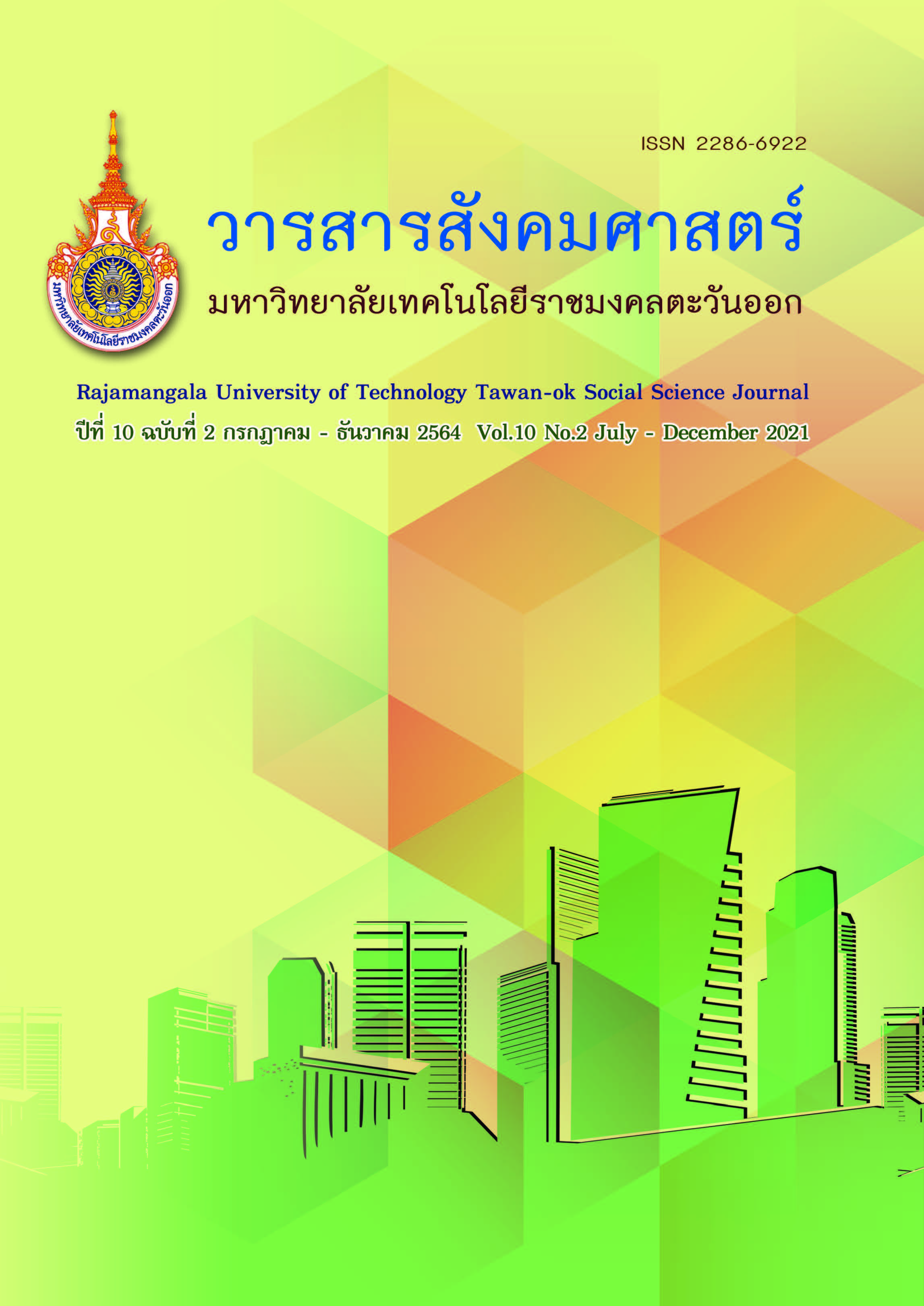Strategy for Coordinating Basic Education Policy at Provincial Level
Main Article Content
Abstract
The purposes of this research were to identify : 1) the Basic Education Policy coordinating
Factors at Provincial Level, and 2) the strategies for coordinating Basic Education Policy at Provincial
Level. The instrument for collecting the data was an opinionnaire which formulated from content analysis both of documents, interview and focus group discussion. The samples were the 21
Education Provincial Offices. The respondents were 12 basic education policy coordinator at the
provincial level, each province composed of 2 officers representations from primary education area
office, secondary education area office, special education office, private education office, non - formal
and informal education office and education provincial committee with a Total of 252 respondents.
The data were collected during September to November 2019. The returning of opinionnaire were
240 cases or 95.23 percent. The statistical treatment were frequency, percentage, arithmetic mean,
standard deviation, exploratory factor analysis, and content analysis. For the strategies of coordinating
Basic Education policy at provincial level was conducting by focus group discussion with 9 basic
education coordinators. The instrument for collecting the data was focus group discussion recording
form, and The findings of this study were as follows :
1. There were 6 factor for basic education policy coordinating at provincial level. Including :
enhancing cooperation, establishing regulations, stimulating interpersonal interaction, formulating
communication System, facilitating operations and developing participation process.
2. The strategies for coordinating Basic Education policy at provincial level were : 1) suporting
to use difference application for coordinating on smart phone and sharing vision, 2) informing laws
and regulation of working and encouraging awareness and working condition together, 3) conduct a
small group meeting among members frequently, 4) providing the coordinating channel and setting
personnel and organization information, 5) allocating the coordinating details appropriately, and
6) stimulating the relationship among personnel and organization.
Article Details
References
กลุ่มนโยบายและแผน สำนักงานคณะกรรมการการศึกษาขั้นพื้นฐาน. (2561). คู่มือการปฏิบัติงานสำนักงานเขตพื้นที่ การศึกษา. Retrieved from http://psdg-obec.nma6.go.th/wp-content/uploads/2015/04/2-Policies-and-plans.pdf
จารุณี ลุนภูงา. (2559). รูปแบบการจัดการศึกษาของจังหวัดจัดการตนเอง. (วิทยานิพนธ์ปริญญาปรัชญาดุษฎีบัณฑิต). มหาวิทยาลัยศิลปากร.
นิติพล ภูตะโชติ. (2556). พฤติกรรมองค์การ. สำนักพิมพ์แห่งจุฬาลงกรณ์มหาวิทยาลัย, กรุงเทพฯ.
ปวีณา จันทร์ประดิษฐ์. (2554). การประสานงาน. Retrieved from http://library.dip.go.th/multim6/edoc/ 2554/19778.pdf
ปุราณวิทย์. (2560). Retrieved from http://oknation.nationtv.tv/blog/phichai/2017/10/20/entry-1
พินิจ สุวรรณรังค์. (2560). การประชุมสัมมนา กศจ. 4 ภูมิภาค.
สถาบันดำรงราชานุภาพ สำนักงานปลัดกระทรวงมหาดไทย. (2553). เทคนิคการประสานงาน. Retrieved from www.stabundamrong.go.th/web/book/53/b18_53.pdf
สมิต สัชฌุกร. (2553). เทคนิคการประสานงาน : Coordinating Technique (Vol. 15): โรงพิมพ์สายธาร.
สำนักงานคณะกรรมการการศึกษาขั้นพื้นฐาน. (2559). คู่มือการปฏิบัติงานขับเคลื่อนการปฏิรูปการศึกษาของกระทรวง ศึกษาธิการในภูมิภาค: กระทรวงศึกษาธิการ.
Afdal, H. W. (2013). Policy making processes with respect to teacher education in Finland and Norway. Higher Education, 65(2), 167-180.
Braun, D. (2008). Organising the political coordination of knowledge and innovation policies. Science and Public Policy, 35(4), 227-239.
Chandler, A. D. (1962). Strategy and structure: History of the industrial enterprise: MIT.
Craft, J., & Howlett, M. (2012). Policy formulation, governance shifts and policy influence: Location and content in policy advisory systems. Journal of Public Policy, 79-98.
Change, Y.N.; and campob - Flores, Filemon. (1980). Business Policy and Strategy : Text and cases Santa Monica, California.
Griessen, T., & Braun, D. (2008). The political coordination of knowledge and innovation policies in Switzerland. Science and Public Policy, 35(4), 277-288.
Hogwood, B. W., & Gunn, L. A. (1984). Policy analysis for the real world: Oxford University Press, USA.
Howlett, M., Mukherjee, I., & Woo, J. J. (2015). From tools to toolkits in policy design studies: the new design orientation towards policy formulation research. Policy & Politics, 43(2), 291-311.
Lampton, D. M. (2015). Xi Jinping and the National Security Commission: policy coordination and political power. Journal of Contemporary China, 24(95), 759-777.
Nilsson, M., & Moodysson, J. (2015). Regional innovation policy and coordination: Illustrations from Southern Sweden. Science and Public Policy, 42(2), 147-161.
Peters, B. G. (2018). The challenge of policy coordination. Policy Design and Practice, 1(1), 1-11.
Po, Y., & Yunbo, L. (2017). Balanced Development for Provincial-Level Coordination and Higher Vocational Education. Chinese Education & Society, 50(5-6), 469-498.
Stephenson, P. J. (2010). The Role of Working Groups of Commissioners in Coordinating Policy Implementation: The Case of Trans European Networks (TENs). JCMS: Journal of Common Market Studies, 48(3), 709-736.
Strehlenert, H., Richter-Sundberg, L., Nyström, M. E., & Hasson, H. (2015). Evidence-informed policy formulation and implementation: a comparative case study of two national policies for improving health and social care in Sweden. Implementation Science, 10(1), 169.


